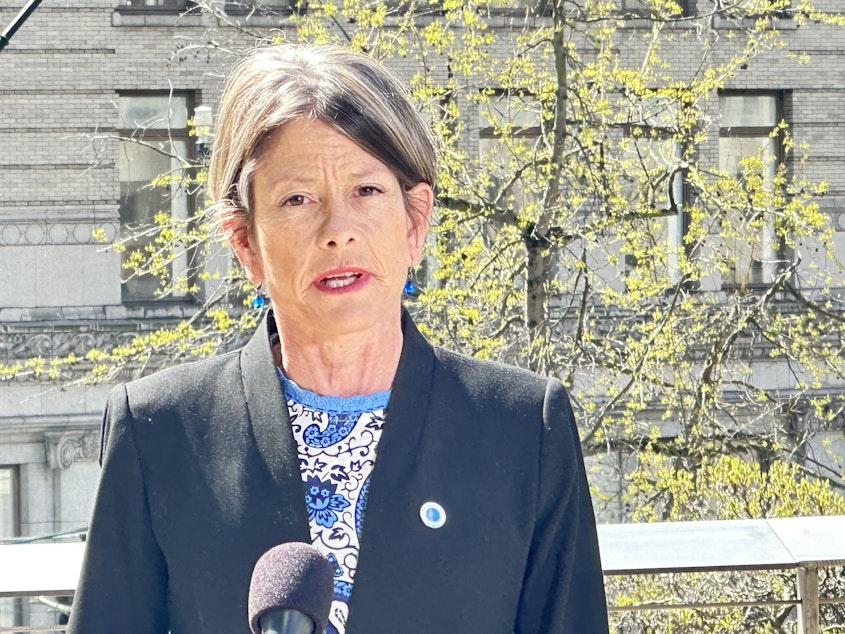Should Seattle expand involuntary commitment for mental health and addiction?

A controversial policy known as “involuntary commitment” for people struggling with severe untreated mental health or addiction issues could be on the table next year in Seattle.
City Councilmember Sara Nelson told KUOW involuntary commitment is just one policy idea that could be discussed as a centrist majority gets set to take over the City Council next year, after most races in the November election went their way.
Nelson added that any city policy would need to take into account current state law on involuntary commitment, also known as “involuntary treatment,” which is very tightly regulated. Currently people can only be detained in rare cases, such as where there is a risk of serious harm due to a mental health or substance disorder.
RELATED: Jail reserved for exceptional cases, as Seattle’s new drug law takes effect
The idea of expanding the use of involuntary commitment has been deeply controversial in Seattle and other liberal cities in the United States following media coverage in the early 1970s of horrifying conditions inside some state institutions. Legal challenges subsequently expanded the rights of people to not be institutionalized against their will.
But as the problems of untreated mental illness and addiction have worsened in recent years, that view has started to shift in some liberal cities, including New York.
Sponsored
Nelson said that some of Seattle’s leading progressive homeless advocates and people in the medical profession have begun floating the idea of involuntary commitment.
“You'd be surprised to know how many people that you might not think would be supportive of involuntary commitment, say that we have got to do so because people are hurting themselves or others,” Nelson said.
RELATED: The backlash over Seattle's plan to reward drug users for staying clean
Nelson, who is in recovery herself for alcoholism, said Seattle’s addiction crisis is so severe, with hundreds of people now dying every year, that the city needs to be open to debating and discussing controversial ideas that might help some people.
“We can't exclude any approach because people are in different places toward their journey to recovery,” she said.
Sponsored
Tyler Hemstreet with Washington's Department of Social and Health Services told KUOW one of the biggest obstacles to any expanded use of involuntary commitment under current state regulations would be finding space. Hemstreet said there are too few beds available for the people who need them now.
If Nelson and others on the new council want to expand the use of involuntary treatment, they can also expect criticism from civil rights activists and groups, including the ACLU.
RELATED: Freeze! Police! What happens when people get caught doing drugs in Seattle?
“We have a troubling history of involuntary commitment resulting in abuses, disproportionately against Black, brown, and Indigenous communities. Forcing people into treatment will not improve health outcomes for people with substance use disorder," Jazmyn Clark of the ACLU of Washington told KUOW in a written statement.




